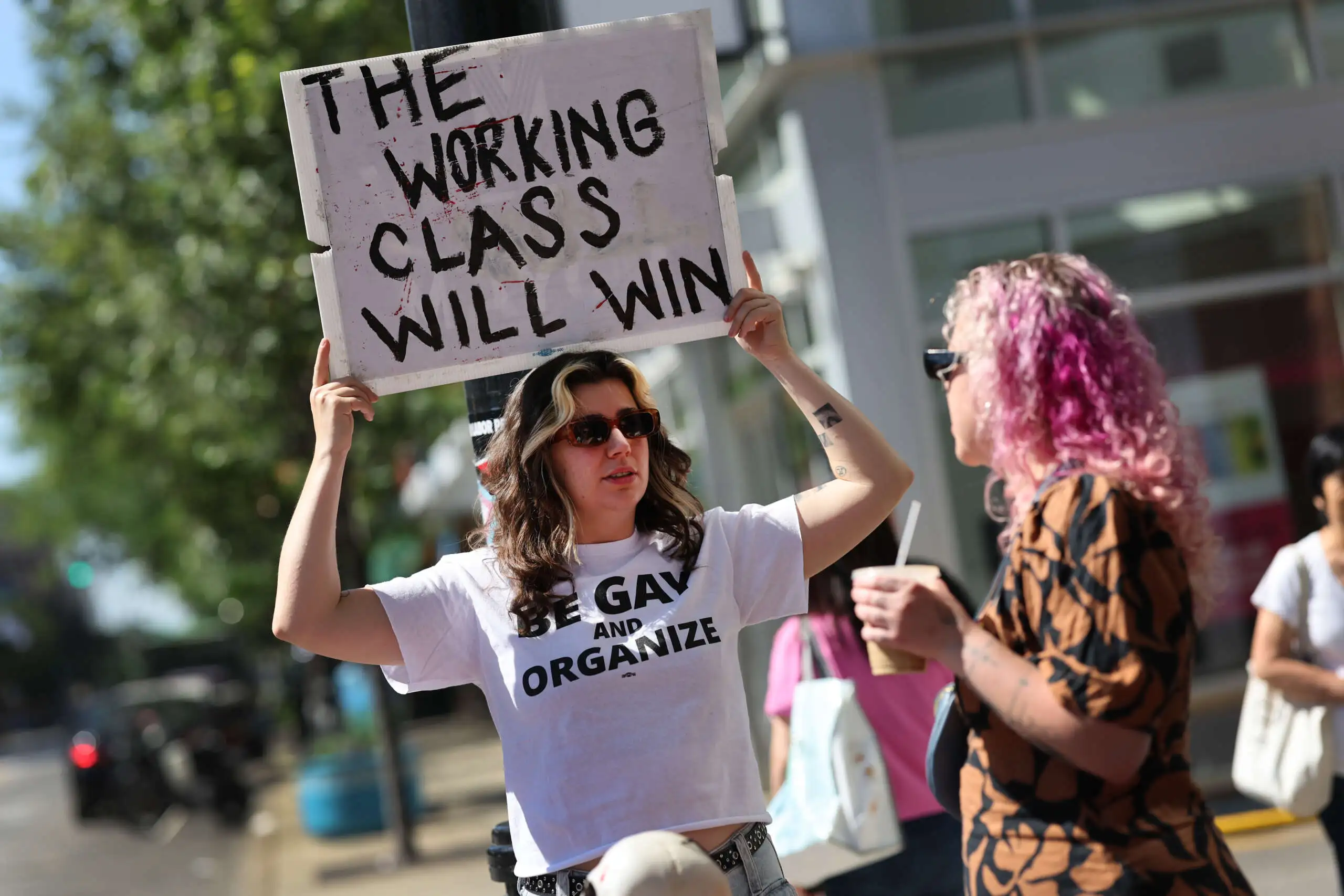they/them
- 8 Posts
- 62 Comments


it doesn’t sound like anything abnormal to just completely forget a new password, let alone one part of it. I would not see anything to worry about in this instance. but if you’re worried about your memory more generally, how is your sleep? do you get enough, is it restful, do you snore, is your schedule consistent, do you eat before bed? there can also be lots of other common factors like unresolved emotional trauma or depression or neurodivergent traits. additionally, memory is a skill that can be trained if you want to have a good memory.
again, this incident is not something to worry about. if you feel like there’s a pattern, there are many things you can look into but start with your day-to-day state. investigate how your body and mind feel. I can’t even begin to get close to saying you may have a particular condition, just want to give some lines of thought you can investigate if you want.


sure did. however, that law technically doesn’t take effect until Sep 1. however, it seems some employers are already taking advantage of it to harm and kill their employees. also important to note that the temperature in much of Texas can still be well above 90F through the end of October, so Sep 1 is not a meaningful date WRT working through the summer - there will likely be many 100F+ days after this law officially begins.
https://www.texastribune.org/2023/07/14/texas-houston-worker-protest-water-breaks-law/


I’ll second this. I’d love to see posts about the green spaces you run through, but for a discussion more focused on the running itself, that would be better suited elsewhere.


I probably don’t fit in with very many anarchist groups, and I don’t fit in with very many hierarchical groups either. I don’t believe a total abandonment of hierarchy is a worthwhile goal; in fact it seems pointless to me as an end in itself. if one’s end goal is the empowerment of individuals to influence their own lives and their communities, removal of hierarchy is a tool to do so. focusing on the total eradication of hierarchy is a distraction because it’s not the actual desired outcome.
I am sure some would argue that it’s necessary to totally eliminate even specific hierarchies in order to achieve personal empowerment, but I don’t think so. personal empowerment isn’t about being able to take any specific action you want, just like we all agree murder is almost never an acceptible exercise of freedom. similarly, I don’t think personal empowerment means letting random people access and interfere with important research projects, but rather the ability for them to study and to become a researcher.


accelerating because someone is tailgating you is not safe. the only safe response is to get away from them by changing lanes or pulling off the road. if it’s impossible to move out of their way, gradually slow down. the faster you’re both moving, the harder it is to avoid a crash and the worse a crash will be.


what you are describing is the tyranny of structurelessness
and you are correct. structure is impossible to escape. but general hierarchy is not. I’m defining that as a structure in which one party has general powers to control another party, like police.
the opposite would be specific hierarchy - a structure in which a party has power over other parties only in prescribed circumstances, like a bouncer deciding when a person must leave a bar. within the structure of our society, that bouncer can’t leave the bar and start forcing people into or out of other locations. a cop more or less can do that.
therefore, it’s not a given that a “nonhierarchical” society is one of implicit structure. the most successful “nonhierarchical” society would be explicitly structured and would have robust checks and balances through specific hierarchies.
for example, a subject matter expert should probably have preferential influence on decisions within their subject over non-experts. certain amounts of violence may always be necessary, so perhaps certain resources need guards. those guards would not be deciding policy, but they would be administering a pre-designed system of resource access, with the power to enforce that system if someone is trying to hoard that resource. (I’m not certain force will always be necessary, but it’s perfectly believable.)
the best structures would discourage power accumulation with distributed responsibilities and self-improving systems (“laws” that prescribe their own revisions, theoretically with certain provisions that prevent regression toward allowing power accumulating behavior). these structures are not impossible, they’re just difficult to design and they are typically hated by power-seeking parties.


I do not believe having a mentor is necessary, but I wish I’d had one. actually, I still wish I had one sometimes. however, a lot of the things you can get from a mentor can be gleaned from community. this forum, hackernews, friends in the industry, and communicative coworkers can all give you unexpected insights.
I’m now on the other end where I’m training new people so I have a little advice - if you’re in a position where you’re working on a team, ask for as much help as you can get away with (and be as specific as possible with all of your asks, people like answering simple questions).


agreed, this is a power that should not exist. I’m glad it was used here for good, and I also also recognize that the GOP plays dirty in every way they can, but it is scary that the intent of a law could just be completely rewritten by the governor. let’s hope WI can become more robust to abuse before a fascist ever gets elected governor


that isn’t what this is referring to. Mississippi has public defenders, but public defenders are horrifically overworked and spend extremely little time with their clients. in Mississippi, it’s worse than in most states. from the article:
After someone is arrested for a felony in Mississippi, that person has an initial appearance in court. A judge informs the defendant of the charges against them, sets the conditions for being released from jail, and appoints a lawyer if the defendant can’t afford one. Under current rules, in many courts that lawyer handles just the initial appearance and, in some cases, an optional preliminary hearing when evidence is presented. After that, the lawyer exits the case.
Only after the defendant is indicted, which often takes months, is another lawyer appointed. Critics have dubbed the period between lawyers the “dead zone.”
Mississippi gives district attorneys unlimited time to indict someone after an arrest, and it’s among a handful of states where defendants can be jailed indefinitely as they await indictment, according to recent research by Pam Metzger, a legal scholar who runs the Deason Criminal Justice Reform Center at Southern Methodist University’s Dedman School of Law.
the change now is that defendants are supposed to have access to an attorney in the “dead zone”.


bit late for me tonight but yes, I’d play with you another time!


hi there, we’re going to remove this post as the story has already been posted here: https://beehaw.org/post/939249
feel free to discuss in that thread or add additional details that may not be part of the linked article.


oops. I missed this somehow when I recently posted a different article about the same thing. I deleted mine since it’s redundant.
for readers, here’s a summary of some facts in quotes from that article
Lawyers for Civil Rights (LCR) - a Boston-based non-profit - filed a federal civil rights complaint on Monday against Harvard
The federal complaint comes days after the Supreme Court ruled Harvard and other US colleges could no longer weigh race as a key factor in admissions.
nearly 70% of legacy and donor-related applicants are white, and … such students are six to seven times more likely to be admitted to Harvard than non-legacy applicants
Legacy admissions have already been banned at institutions including the University of California and all of Colorado’s public universities, with several efforts targeting the practice elsewhere.
[legacy admission] still accounts for nearly a quarter of newly admitted students at some of the nation’s top schools, and supporters argue the policy builds a strong alumni community and donor base.
I think the article could be posted in !technology, but I’ll admit that it doesn’t seem we have a perfect home for this. A different article with more of an investigative/analytical angle about the same phenomenon would be more appropriate in !news.
edit: I forgot we have !finance, it may belong there
Typically mods try to leave a comment explaining why a post is removed, but sometimes that can get missed. In this case, the article linked is not considered news, but opinion.


crypto got a bad name for a few reasons, but scams are a big one. the thing is, there’s scams in everything. the scams and the NFTs grifts and the flavor-of-the-month coins don’t reflect on the fundamental technology or the value of the bigger coins.
I think there are still very valid criticisms of cryptocurrency even at its best. I think we’re not ready for it, technologicallly, because we aren’t responsible enough with our energy production to base money directly off of it, but it makes sense to me that money could/should ultimately be an account of energy production. (or it shouldn’t exist, idk)
in my opinion it’s almost as much of a scam to just blanket say all crypto is trash because of scams, as it is to, well, have crypto scams. blockchain can’t/shouldn’t be everything people hype it up to be, but that doesn’t mean it’s just garbage technology.


I could, but the article I linked already has.


There can be a discussion about Aljazeera as an organization, but that has nothing to do with the content of this article.
And reparations is not only about slavery. This panel wrote 1,075 pages on the subject and it doesn’t sound like you even read one article about it before trying to dispute the validity of a reparations program. Again, there can be discussion about how reparations should be handled, but it should start by acknowledging that colossal amount of work that has already gone into the conversation.
to call it a cycle is wildly disingenuous. on the one hand, black people were enslaved, separated from their familes, prevented from building wealth, murdered, and then enslaved again through targeted laws. but for black people to get preferential admission to college (and still be underrepresented), that’s comparable to doing all of the above to white people?









yep. it’s a stupid powerful build but also surprisingly flexible.